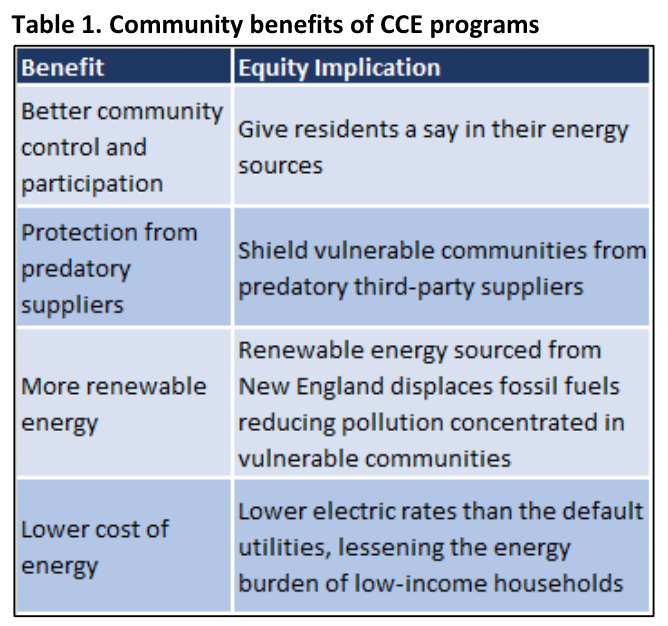Client: Barr Foundation
Tyler Comings, Liz Stanton, PhD, and Bryndis Woods
March 2018
On behalf of the Barr Foundation, Senior Researcher Tyler Comings, Clinic Director and Senior Economist Liz Stanton, PhD, and Researcher Bryndis Woods prepared a series of four policy briefs related to Boston's new Community Choice Energy Aggregation (CCE) program:
Boston CCE and Electric Costs: Describes the expected impact of Boston's new CCE program on electric customer costs.
Boston CCE and Greenhouse Gas Emissions: Describes the greenhouse gas emission reductions expected to result from Boston's new CCE program.
Boston CCE and State Clean Energy Laws: Provides a comparison of Boston CCE, the Massachusetts Renewable Portfolio Standard, and the Massachusetts Clean Energy Standard.
Sourcing Green Energy for CCE Programs: Provides an overview of current CCE programs in Massachusetts and around the United States including a discussion of the different methods used to source their green energy.
These policy briefs are part of a series of AEC publications funded Barr Foundation examining how community choice energy (CCE) aggregation programs work and addressing commonly asked questions about Boston's proposed CCE program.






